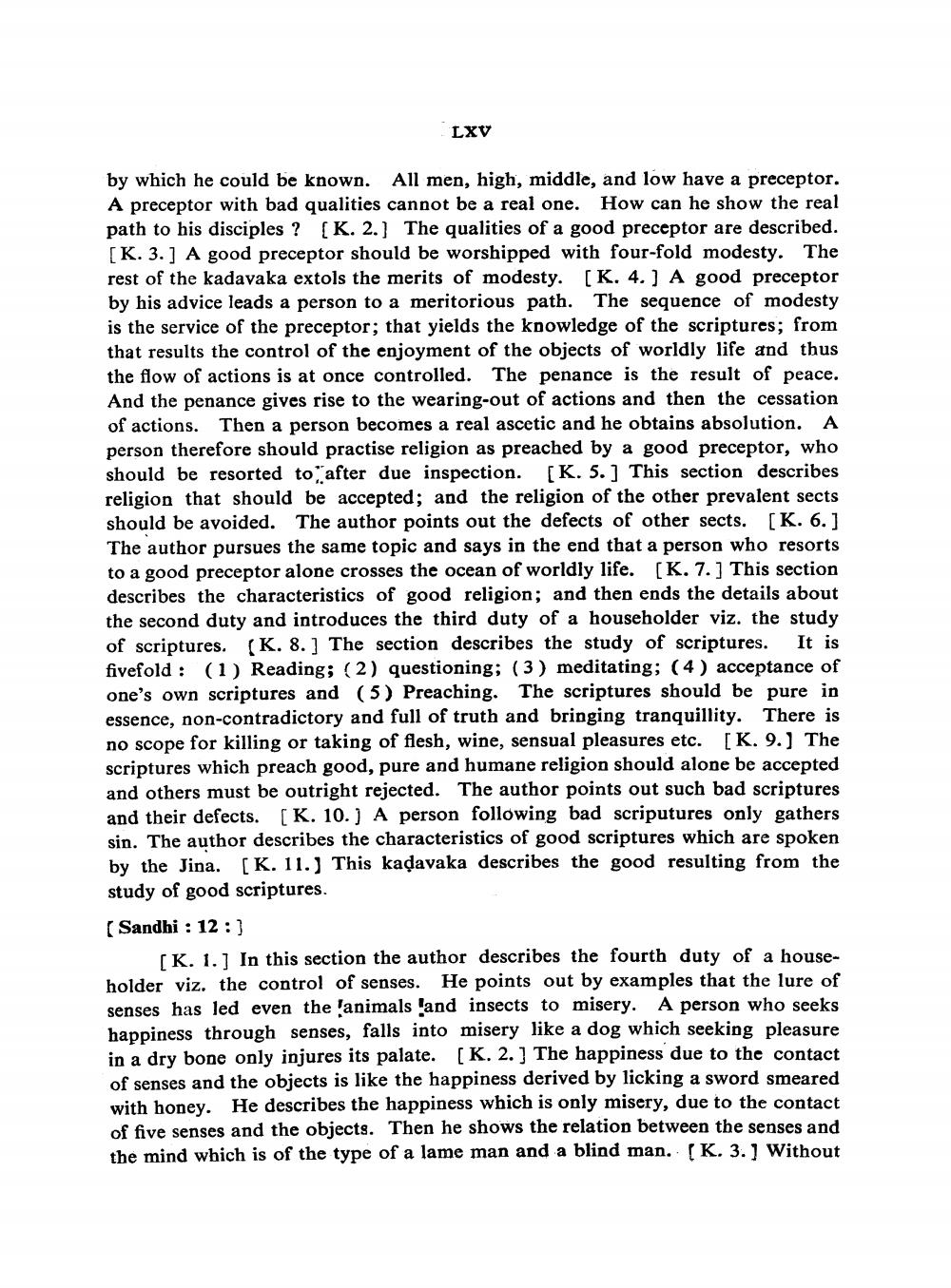________________
LXV
by which he could be known. All men, high, middle, and low have a preceptor. A preceptor with bad qualities cannot be a real one. How can he show the real path to his disciples? [K. 2.] The qualities of a good preceptor are described. [K. 3.] A good preceptor should be worshipped with four-fold modesty. The rest of the kadavaka extols the merits of modesty. [K. 4.] A good preceptor by his advice leads a person to a meritorious path. The sequence of modesty is the service of the preceptor; that yields the knowledge of the scriptures; from that results the control of the enjoyment of the objects of worldly life and thus the flow of actions is at once controlled. The penance is the result of peace. And the penance gives rise to the wearing-out of actions and then the cessation. of actions. Then a person becomes a real ascetic and he obtains absolution. A person therefore should practise religion as preached by a good preceptor, who should be resorted to "after due inspection. [K. 5.] This section describes religion that should be accepted; and the religion of the other prevalent sects. should be avoided. The author points out the defects of other sects. [K. 6.] The author pursues the same topic and says in the end that a person who resorts to a good preceptor alone crosses the ocean of worldly life. [K. 7.] This section describes the characteristics of good religion; and then ends the details about the second duty and introduces the third duty of a householder viz. the study of scriptures. (K. 8.] The section describes the study of scriptures. It is fivefold (1) Reading; (2) questioning; (3) meditating: (4) acceptance of one's own scriptures and (5) Preaching. The scriptures should be pure in essence, non-contradictory and full of truth and bringing tranquillity. There is no scope for killing or taking of flesh, wine, sensual pleasures etc. [K. 9.] The scriptures which preach good, pure and humane religion should alone be accepted and others must be outright rejected. The author points out such bad scriptures and their defects. [K. 10.) A person following bad scriputures only gathers sin. The author describes the characteristics of good scriptures which are spoken by the Jina. [K. 11.) This kadavaka describes the good resulting from the study of good scriptures.
[Sandhi : 12:]
[K. 1.] In this section the author describes the fourth duty of a householder viz. the control of senses. He points out by examples that the lure of senses has led even the animals and insects to misery. A person who seeks happiness through senses, falls into misery like a dog which seeking pleasure in a dry bone only injures its palate. [K. 2.] The happiness due to the contact of senses and the objects is like the happiness derived by licking a sword smeared with honey. He describes the happiness which is only misery, due to the contact of five senses and the objects. Then he shows the relation between the senses and the mind which is of the type of a lame man and a blind man. [K. 3.] Without




